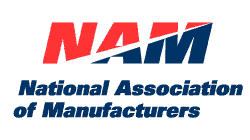I wrote last week of the Coalition for a Prosperous America’s attempts to prevent relaxing the “domestic content” rules of the U.S. Export Import Bank. This review of rules was required by the last authorization Ex-Im Bank authorization bill. The multinational lobby successfully inserted the provision.
The National Association of Manufacturers was one organization seeking the change, to allow U.S. taxpayer funds to back financing for multinationals to export products with more foreign made content. I don’t have the link, but here is the NAM language from the letter.
“Domestic Content Rule Flexibility: Ex-Im’s requirement that there be 85 percent U.S. content is hampering the ability of the Bank to finance exports that compete with foreign products and is resulting in the needless loss of U.S. jobs. We urge the committee to consider the realities of today’s integrated global supply chains that in many cases preclude an 85 percent content. “
Taxpayers certainly don’t want to finance foreign made goods for export, just because a multinational incorporated in the U.S. assembles the product.
If we are going to produce more in the U.S., and stem the loss of our production base of goods and food, we need public policy to promote this end. The effort to change the ExIm Bank domestic content rules would be an anti-U.S. production change.



Policies like this are why I quit NAM and Why I urge others to do the same. NAM loses its political voice with diminsihed member numbers. No matter how much good NAM does on other policies if they kill off domestic producers with their free trade stance they do harm to manufacturing in the US
I could not support an association that lobbied for policies that lead to the demise of my domestic manufacturing company.
I would like to echo Burl’s comments. Anyone who is sending money to NAM and is concerned about domestic production losses is sending money to the enemy!!!
Not only should the Ex-Im not finance anything over 15% but should limit their financing tied to the amount of foreign value added goods. If the company has 10 percent of value added goods, for instance, the amount financed should be reduced by 3 times the 10 percent or 30% of what it would otherwise be. This factor could go up or down depending on our trade deficit.
Our government is being so incompetently run that the real reason for taxpayer funded agencies or organizations rarely has the results that match its stated purpose. Instead, we have “interested” parties that continually game the purposes of these agencies for their own advantage.
This would be a real good time to re-assess the current policy and include the type of policies I have outlined above. Any time questions like this come up we should advance the real purposes of the policy to push back on those who would mold policy into their benefit instead of the national interests.